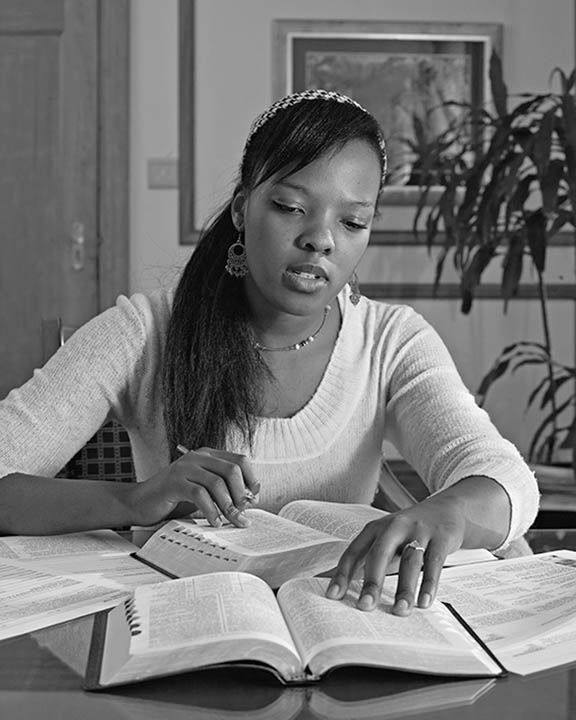Mormons are taught to get a good education—both formal and informal educations and both spiritual and secular educations. This teaching was especially important to Joseph Smith, the first prophet of The Church of Jesus Christ of Latter-day Saints, whose members are often called Mormons. He learned basic literacy from his father and had a few years of schooling once schools came to his area, but in general, he’d had very little education. After the church was organized, he set up educational programs for both children and adults and attended them himself. A Jewish scholar hired to teach Hebrew said no student worked harder than Joseph at his studies. Because he had lacked educational opportunities as a child, he encouraged education among his members and modern Mormons do as well.
 Mormon parents are taught that responsibility for education of all kinds begins with them. They learn to create a rich, intellectually and spiritually stimulating home environment in which a love of learning is taught by example. Parents bring (not send) their children to church, but they learn that the programs for children and teens are meant to support, not replace the parents in their efforts to teach their children.
Mormon parents are taught that responsibility for education of all kinds begins with them. They learn to create a rich, intellectually and spiritually stimulating home environment in which a love of learning is taught by example. Parents bring (not send) their children to church, but they learn that the programs for children and teens are meant to support, not replace the parents in their efforts to teach their children.
Religion is taught through daily family prayers and scripture study, as well as through a weekly family night in which the family studies one aspect of the gospel together before having an evening of games or service. Families attend church together each week.
Academically, parents do the same things good parents everywhere do. They read to their children, talk to them, take them on educational outings, and encourage them to think. Mormons are encouraged to keep journals, and this is a known way to improve writing skills in children. Goal-setting programs for children and teens carried out through the church often encourage academic pursuits and teach children to make education important to their lives.
Mormon parents are taught to make certain their children receive formal educations as well, through public or private school or by homeschooling. The Church does not operate private schools except in a few countries where education is not readily available, so children receive their educations in whatever manner the parents choose.
The Church does operate a number of colleges. Brigham Young University in Provo, Utah is noted for its high academic offerings, its inexpensive price, and its clean-cut environment. The school also has campuses in Idaho and Hawaii. There is also a business college in Utah.
Mormon teens attend a religion class before attending school each year of high school. This class studies the scriptures in-depth in a more academic way, mingled with the spiritual, than does their Sunday School class. In college, they can attend an Institute of Religion, in which religious subjects are covered at a college level, also very in-depth.
Mormon congregations offer a literacy program to anyone who needs it. Students can learn to read and write, speak the language of their country, use computers or pursue whatever other literacy topics the congregation finds it needs to offer.
Mormons learn to make sure they continue to learn spiritually and academically all their lives. The church offers a variety of programs to assist, but members are also taught to be self-reliant and to teach themselves where they can.
“To keep spiritual learning in its proper place, we will have to make some hard choices of how we use our time. But there should never be a conscious choice to let the spiritual become secondary. Never. That will lead to tragedy. Remember, you are interested in education, not just for mortal life but for eternal life. When you see that reality clearly, you will put spiritual learning first and yet not slight the secular learning. In fact, you will work harder at your secular learning than you would without that spiritual vision.”
Henry B. Eyring, “Real-Life Education,” New Era, Apr. 2009, 5
